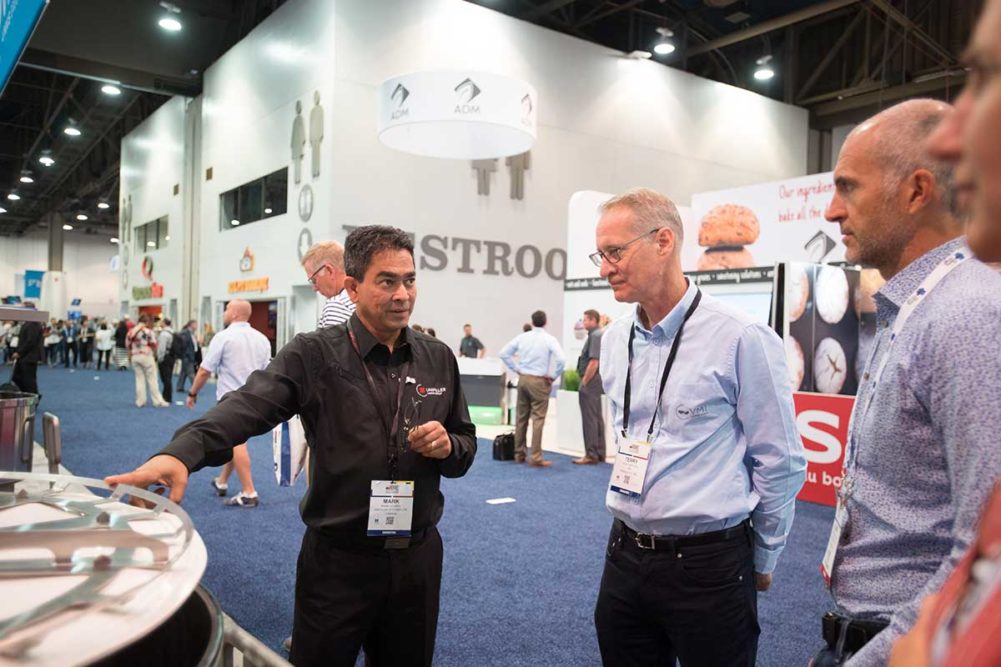The International Baking Industry Exposition (IBIE) serves as a venue for the baking industry to come together and discover the latest innovation in both ingredients and technology, hear from experts, and engage in critical conversation to address the challenges of the day. This year’s event was no different and perhaps even more so with a palpable energy added after the past three years of pandemic have suppressed travel and brought an onslaught of unique challenges.
Bakers were able to peruse the Las Vegas Convention Center North and West Halls for new technologies: robotics, integrated systems, AI and remote maintenance were the innovations dominating many of the conversations. IBIEducate sessions tackled the workforce issue, consumer trends and automation best practices. But the sleeper topic that I did not anticipate was sustainability.
Sustainability was a major talking point at IBIE 2019 with bakers looking for energy-efficient equipment, heat recovery, water and waste reduction and sustainable packaging. But the COVID-19 pandemic and its focus on public health and food safety placed sustainability on the back burner. Suddenly, capital spending dollars went to adding capacity and labor-reducing solutions rather than green initiatives. Consumers also became more accepting of single-serve packaging, recognizing that plastic has its place in society.
This, however, appears to have been a blip with sustainability initiatives coming back to the forefront in a more nuanced way. Consumers are again turning their noses up at single-serve packaging, or at least insisting that it’s sustainable packaging. We saw plenty of solutions at IBIE 2022. Energy-efficient equipment is quickly becoming a standard expectation, similar to the way sanitary design became standard over the past 10 years. And bakers and suppliers were sharing best practices of sustainable operations in IBIEducate sessions. None of this is new, except maybe the innovative packaging materials. What was new was the extra mile bakers expect their supplier partners to go.
Just offering sustainable solutions is no longer enough. Baking companies are asking suppliers what they are doing as companies to better the environment. They are looking for not just a sustainable solution but also a sustainable partner.
And the definition of sustainability has expanded to include not just a list of ways a company is reducing its carbon footprint but also how a company is treating its employees and sourcing materials in a humane and environmentally friendly way. Sustainability has become not just a baker/supplier partnership question but also a recruiting tactic as well. As the labor market becomes more competitive, employees are looking to work for companies whose values line up with their own, and for many millennials and Generation Z employees, sustainable business practices are a major draw.
The baking industry has traditionally been a humble one, doing good and not trumpeting it. But those times are changing, and baking companies and suppliers will need to share their good work with the industry, not just to share best practices but also to simply do business and stay ahead.




